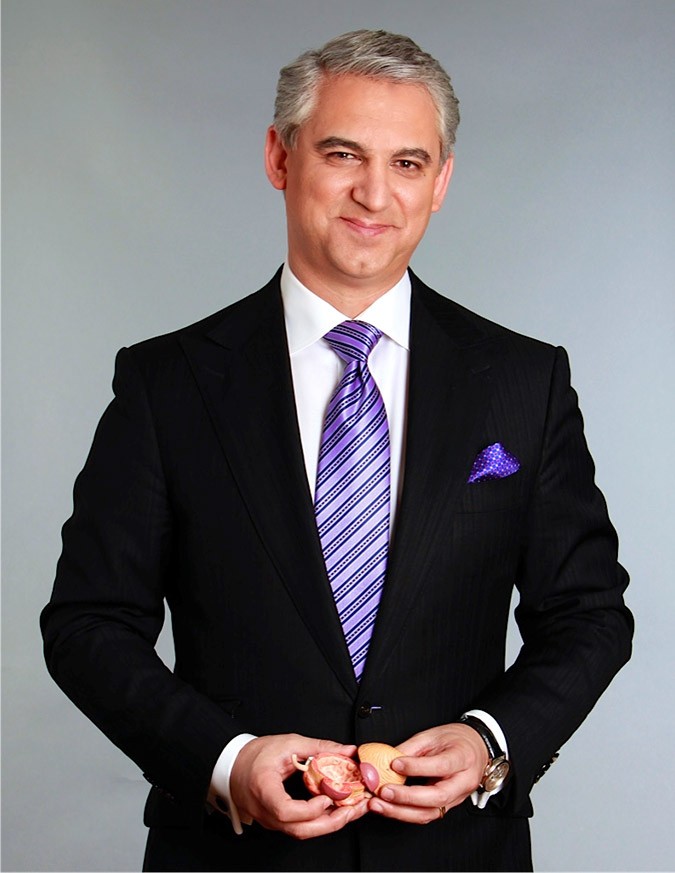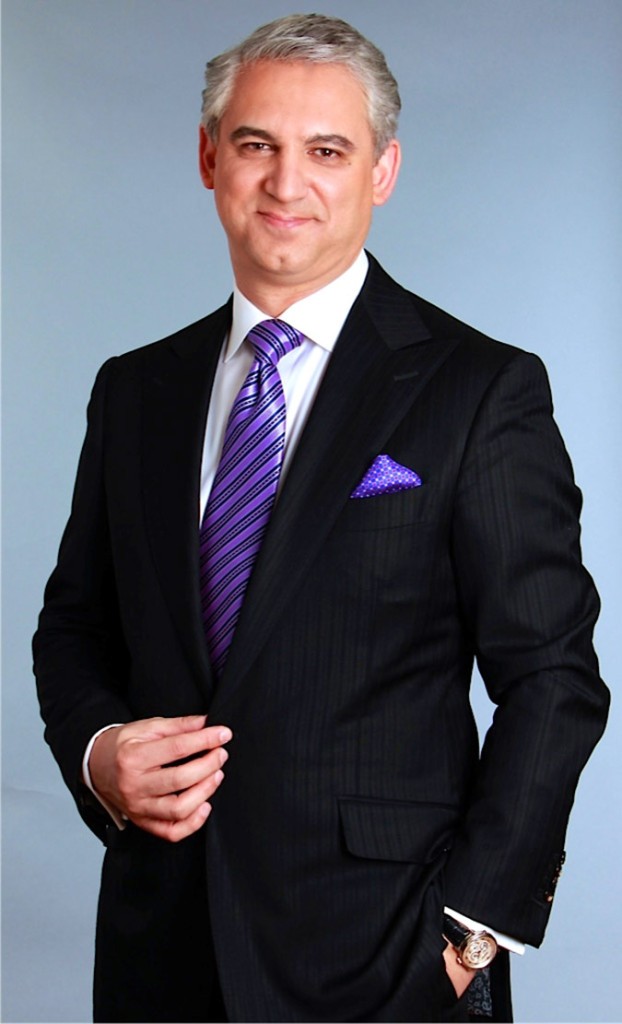Renowned urologist and healthcare advocate David Samadi, considered one of the world’s top robotic surgeons in dealing with prostate cancer, will bring his and his team’s expertise to Cyprus next month.
With more than 5,600 robotic prostate operations under his belt, Dr. Samadi ranks in a very exclusive category of physicians worldwide.
In fact, the term “ground-breaking scientist” may be too narrow to define him, given that he’s not just an urologist-surgeon and a pioneer in employing robotic surgery to deal with prostate cancer – for which he’s a medical expert — but also a university lecturer, hospital department director and for many a bonafide champion in getting out the message that men should have regular medical exams.
We spoke with Dr. Samadi on several occasions over the phone, and in every instance he was already a good hour into his workload, despite the fact that it was 7 a.m. EST!
That was, in fact, the first question addressed to the high-profile surgeon and very visible men’s health advocate.
“When do you sleep”?
“All of my friends and patients ask me this,” he says with a laugh. “You always need five to six hours. I am fortunate to be surrounded by great qualified people. I love what I do; I enjoy what I do, I love the art of medicine, and the connection with my patients; it’s extremely gratifying.”
Asked to explain exactly what robotics means to his specific area of expertise, prostate cancer, he said the medical reasoning connected with the standard open surgery, by which a surgeon touches and feels the gland with fingers, is old-fashioned and obsolete.
“In the past we used fingers because we couldn’t see, there was too much blood. First with the laparoscopic method and then by using robotics we can compress the vessels; there’s no blood in the field and you have tissue recognition. We’re using our eyes and not our fingers, therefore, the procedure has become much more precise.”
He then continues by pointing out the extreme importance of both excising what’s cancerous and leaving behind what’s necessary for a normal life.
“Keep in mind that the first cancer operation is extremely important, but it’s also important for what you leave behind, like all the muscles for continence and the nerves.”
He likens the procedure of peeling away the all-important nerves to peeling an orange, beginning from the top of the orange, while leaving the entire shell intact – which in this case, means the prostate. He said the success rate for his robotic surgeries – conducted exclusively by himself and his team — achieve a 95-percent success rate for continued continence and an 80 percent success rate for continued sexual function.
In fact, he stresses that he has only one enemy in life: cancer!

Asked about the cost of robotic surgery in comparison to the traditional procedure, or with laparoscopic method, he says:
“Think of cost as the difference of a few thousand dollars between open surgery and laparoscopic surgery; and a few thousand dollars between laparoscopic surgery and robotic surgery. It may cost a little bit more than laparoscopic surgery, but consider that the patient won’t be off work for two to three months, but instead for two to three weeks. There’s no transfusion involved and much less pain. There no need for morphine and no risk of blood clots due to not moving.
“Here, you ask yourself: ‘What’s the cost of improving your quality of life’?”
Regarding the technology vs. medical acumen debate, he said:
“Future surgeons should not be just technicians, treating this as some miracle technology. You must pay your dues to get here; it’s (technology) like a Lamborghini, you must have a skilled driver behind the wheel. You’re not a good and skilled cancer surgeon if you leave the cancer behind; you’re not going to get credit for doing robotic skills.”
Dr. Samadi is emphatic when he stresses that he prefers a good open surgeon instead of a mediocre robotic surgeon.
A Samadi Institute on Cyprus
With patients from around the world, he expectedly has close relations with Hellenism, ties that will increase exponentially with the inauguration on Cyprus of a robotic surgery institute that bears his name, the Dr. David B. Samadi Institute of Robotic Surgery at Limassol’s Mediterranean Hospital of Cyprus (MHOC).
MHOC will host Dr. Samadi between July 20 and July 27 at the institute that bears his name. The institute was founded to care for patients from the surrounding region that suffer various forms of prostate cancer, while offering the state-of-the-art robotic method for prostate surgery.
Speaking from his Manhattan office, Samadi, 45, added that another purpose of the institute is to bring the robotic surgery expertise to surgeons and medical students of the wider region, “so that the next generation of urologists will be exposed to this robotic technology.
Whoever needs to contact Dr. Samadi can do so by calling his office at (001) 212-365-5000.
Ask me anything
Explore related questions







